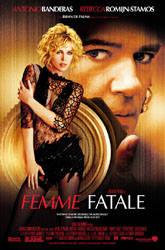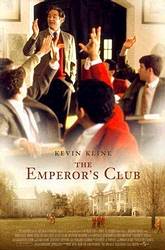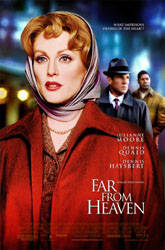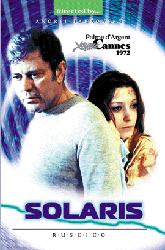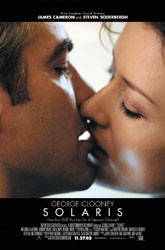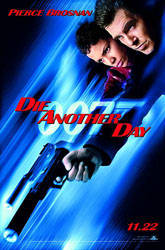 Director: Starring:
OTHER REVIEWS: |
Die Another Day BY: DAVID PERRY The James Bond franchise as we know it began 40 years ago with the Monty Newman music introducing Sean Connery's walk through the barrel of a gun. Moments later, the soundtrack has begun playing "Three Blind Mice" and Ursula Andress has emerged from the ocean wearing barely a knife. There have been 19 visits with Bond over the years (not including the bastardized Never Say Never Again and Casino Royale), each with similar memories of music, sex, beautiful women, and great gadgets. Remembering the Bond series is like remembering part of life -- scary as it may sound, over 80 hours of our lifetime have been spent with this man as he's gone through various incarnations. The producers, coming off of Albert R. Broccoli's successful formula, release the movies every other November, striking an early family get-together (albeit, with a fictional family member) that has both the pomp of an uncle's overblown story and the filling of too much Thanksgiving and Christmas dinner. Die Another Day, marking the twentieth feature since Dr. No, spends its first two-thirds in awe of its past, constantly reminding the audience of previous Bond films through old gadgets, old cars, and old settings. But the main problem that plagues Die Another Day is not that it spends too much time in nostalgia, but that it finally chooses the wrong nostalgia to embrace. With 19 films of varying success behind it, Die Another Day cannot find the right level of contemporaneous action to go with its historic shallowness. There is nothing wrong with a sequence that has Bond running around Cuba trying to make sense of the people and events passing him by -- this was, of course, the main expository ideas used in Sean Connery's first three films, which are generally considered the best three films -- but to take it and throw in enough pompous, overdone CGI sequences that have nary the amount of direction causes the film to both run too long (the 132-minute length covers 25 minutes of unneeded triple climaxes) and remind the audience that they've already seen this film, just that it starred Vin Diesel at the time. Complaining about a Bond film sticking with an idiotic formula is like saying Bergman was too existentialist -- even if these statements are true, they serve as eternal attributes to the works' appeal. The Bond villain still makes little sense (played now by Toby Stephens as a billionaire developing a space satellite weather machine) and the Bond girls offer little more than carnal representations of the action female. The latter statement is certainly true with regards to the actual audience interest in this film's Bond girls, even though the Broccoli family tries their best to ensure that one of them, Jinx (Berry), is more of a companion in the action than eye-candy. The family has notoriously considered a female Bond (the idea, which was most commonly connected to Sharon Stone, dissolved soon after the hiring of Pierce Brosnan for GoldenEye) and the see-through ascent of Jinx in the ranks of Bond girls shows just how desperate they were to make it finally happen. Even if this is still a Bond films starring the rugged male virility, the intent to one day have a Jinx spin-off is clearly permeating from the film's martini and cigar façade. Die Another Day deserves credit for reworking
the Bond ethos into an interesting form for much of the film (the first two-thirds of the
movie is the best since Timothy Dalton's underrated The Living Daylights), but
loses all of its headway by confusing modernity with success. The posh security that can
be found in most of the Bond films helps to bring fans back every two years. The
uneasiness to continue the tradition in the third act helps to destroy what had been a
magnificent Bond film. But none of the producers should be worried: we'll all be back in
two years for the next film. |

